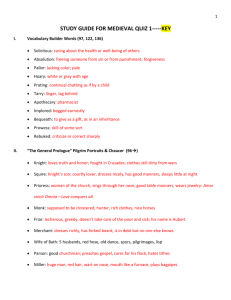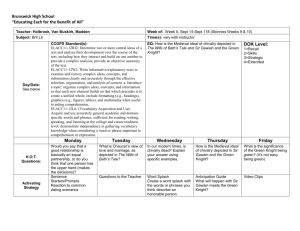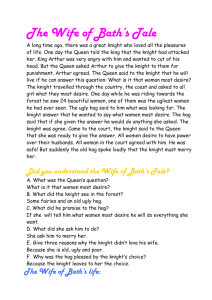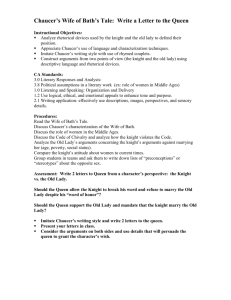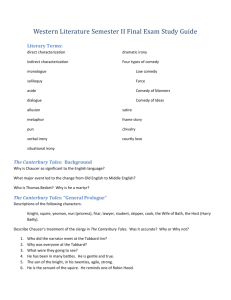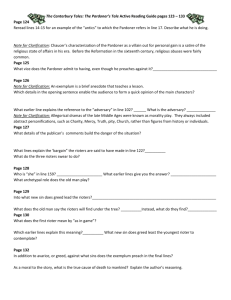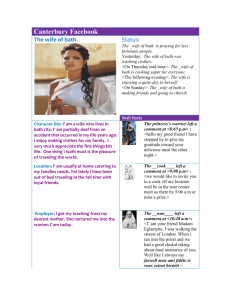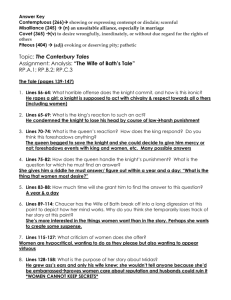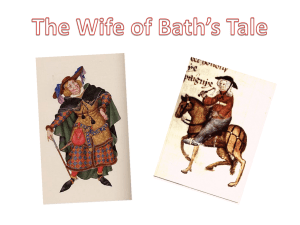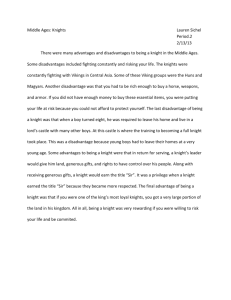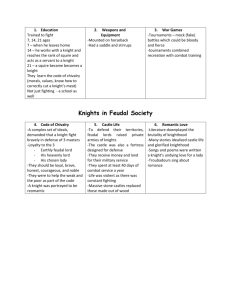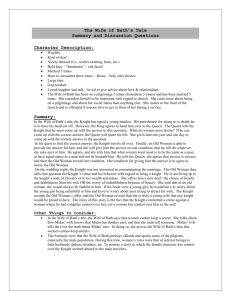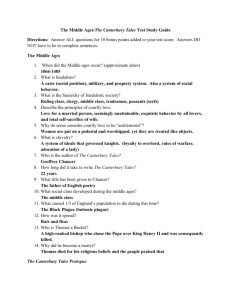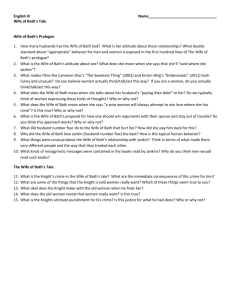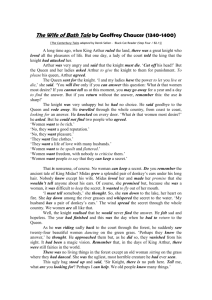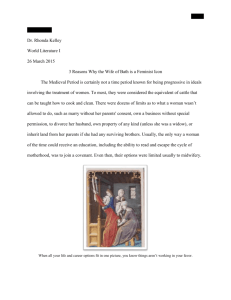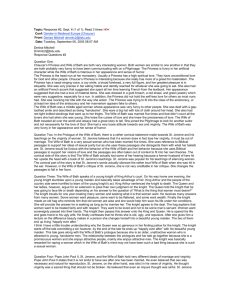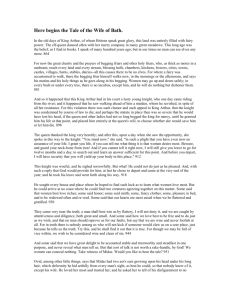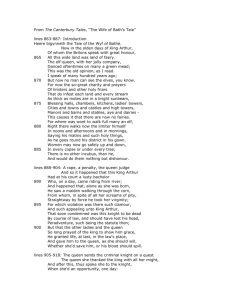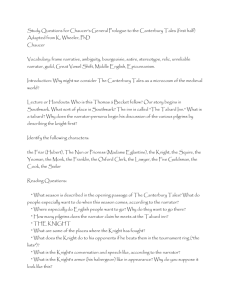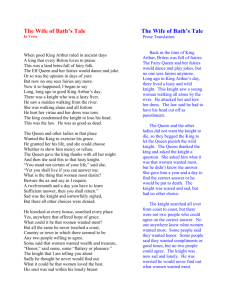The Wife of Bath*s Tale* from The Canterbury Tales
advertisement
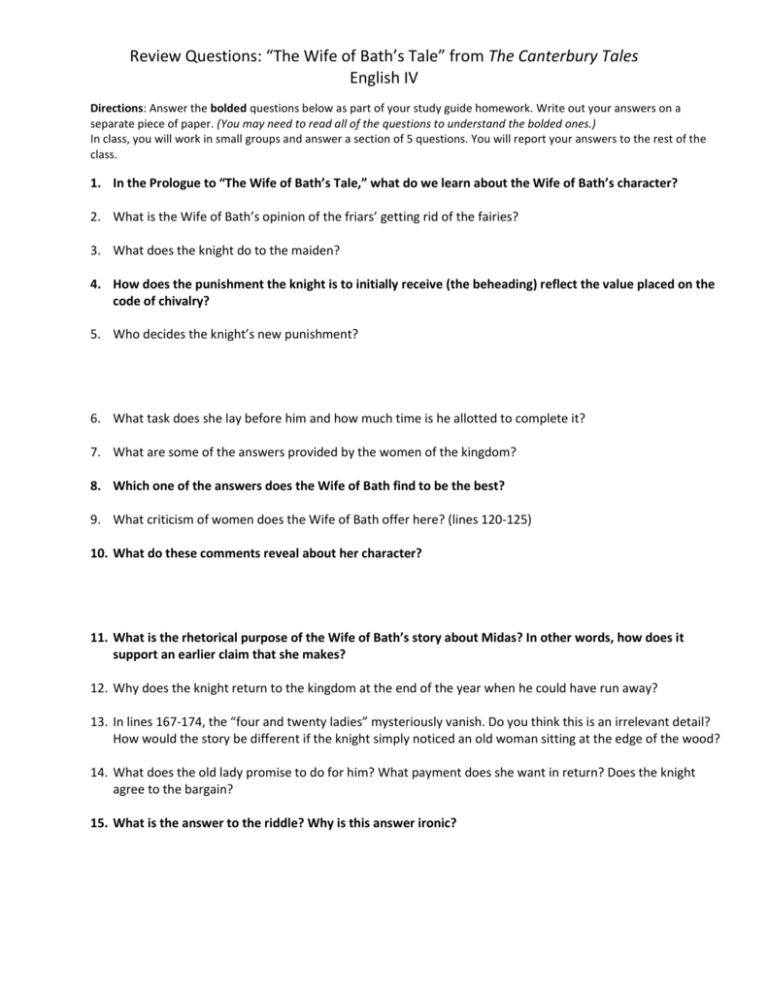
Review Questions: “The Wife of Bath’s Tale” from The Canterbury Tales English IV Directions: Answer the bolded questions below as part of your study guide homework. Write out your answers on a separate piece of paper. (You may need to read all of the questions to understand the bolded ones.) In class, you will work in small groups and answer a section of 5 questions. You will report your answers to the rest of the class. 1. In the Prologue to “The Wife of Bath’s Tale,” what do we learn about the Wife of Bath’s character? 2. What is the Wife of Bath’s opinion of the friars’ getting rid of the fairies? 3. What does the knight do to the maiden? 4. How does the punishment the knight is to initially receive (the beheading) reflect the value placed on the code of chivalry? 5. Who decides the knight’s new punishment? 6. What task does she lay before him and how much time is he allotted to complete it? 7. What are some of the answers provided by the women of the kingdom? 8. Which one of the answers does the Wife of Bath find to be the best? 9. What criticism of women does the Wife of Bath offer here? (lines 120-125) 10. What do these comments reveal about her character? 11. What is the rhetorical purpose of the Wife of Bath’s story about Midas? In other words, how does it support an earlier claim that she makes? 12. Why does the knight return to the kingdom at the end of the year when he could have run away? 13. In lines 167-174, the “four and twenty ladies” mysteriously vanish. Do you think this is an irrelevant detail? How would the story be different if the knight simply noticed an old woman sitting at the edge of the wood? 14. What does the old lady promise to do for him? What payment does she want in return? Does the knight agree to the bargain? 15. What is the answer to the riddle? Why is this answer ironic? 16. What does the old woman request as her reward for helping the knight? 17. What is your reaction to the knight’s reluctance to grant her request? Do you think he is getting what he deserved or is he being unduly penalized? 18. Is the knight’s reaction to the old woman an example of direct or indirect characterization? What does it reveal about his character? (Lines 274-279) 19. What three complaints does he put forth about their marriage in this same passage? 20. What response does she give to these three complaints? (pages 185-187) 21. What choices does the old woman offer the knight to help end his agony? (page 187) 22. What do you think of the choice the old woman is offering the knight in this passage? 23. What answer does he give? 24. Is the knight’s response a genuine response, meaning does he provide this answer because he respects the old woman or because he’s learned to give the correct answer? 25. What does she choose? 26. What is the Wife of Bath’s final comment on men, women, and marriage? 27. What is humorously ironic about the views she expresses? 28. What is/are the moral(s) of the story? 29. How does this story fit the medieval genre of a “romance”?
